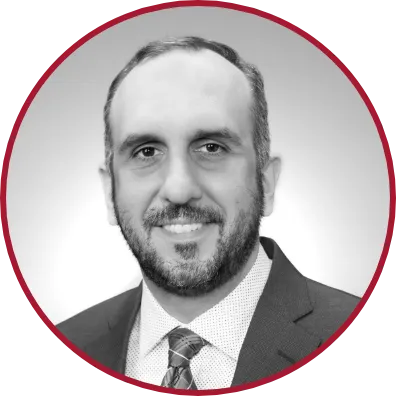
Round Table Discussion: The Role of LFP Biomarkers for DBS Patient Management to Simplify DBS Lead Implantation and Post-Op Patient Programming
DBS Navigation Webinar
July 24, 2024 | 6 PM CT | No Cost
Local field potentials (LFPs) have emerged as valuable biomarkers for programming DBS patients with movement disorders like Parkinson's disease. Studies have shown that LFP signals from the STN and GPi can provide objective information to optimize DBS parameters and predict clinical outcomes like therapeutic efficacy, side-effect thresholds, and symptom improvement. In this webinar, Alpha Omega will be hosting a roundtable discussion with four leading experts on how neurology clinics and neurosurgeons use this information and integrate it into their clinical practice to:

Simplify DBS lead implantation with real-time intraoperative LFP recording

Optimize DBS patient programming and management by tailoring to specific disease states

Improve programming outcomes by associating LFP biomarkers with movement disorder symptomatology
Explore how LFPs can enhance your DBS workflows and clinical outcomes by registering for the webinar:
Featuring:

Dr. Corneliu Luca
Dr. Luca is a board certified neurologist, faculty of the Movement Disorders Division, and Assistant Professor of Clinical Neurology at the University of Miami. Currently he is involved in clinical and translational research in Parkinson’ disease and has a broad interest in neurodegenerative disorders with an emphasis on movement disorders. He is currently the principal investigator in a clinical trial that aims to identify new strategies for gait dysfunction in Parkinson’s Disease.
Dr. Drew Kern
Dr. Drew Kern is a board-certified neurologist and Associate Professor of Neurology and Neurosurgery at the University of Colorado School of Medicine within the Movement Disorder division. As Co-Director of the Deep Brain Stimulation Program and Advanced Therapies in Movement Disorders, his research is focused on advancing treatment options in movement disorders, including novel drug and surgical delivery systems, exploring novel targets in DBS, improve upon targeting of DBS, and even optimizing of DBS programming.


Dr. Drew Kern
Dr. Drew Kern is a board certified neurologist and Assistant Professor of Neurology and Movement Disorders at the University of Colorado School of Medicine. His research is focused on advancing treatment options in movement disorders, including novel drug and surgical delivery systems, exploring novel targets in DBS, improving upon targeting of DBS, and even optimizing of DBS programming, among other research interests.

Dr. Amir Faraji
Dr. Amir Faraji is a board-certified neurosurgeon and Director of epilepsy surgery, peripheral nerve surgery, and stereotactic and functional neurosurgery at Houston, Texas at Houston Methodist Hospital. He is actively working to develop new drug delivery strategies to the brain, advance brain, spinal, and peripheral nerve regeneration, and engineer novel neural interfaces and prosthetics devices as the founder of the Clinical Innovations Laboratory at the Houston Methodist Research Institute.

Dr. Oliver Flouty
Dr. Oliver Flouty is a board-certified neurosurgeon in Tampa, Florida at Tampa General Hospital and Assistant Professor in the Department of Neurosurgery and Brain Repair at USF Health Morsani College of Medicine. His expertise involves surgical implantation of devices in the brain and spinal cord for adults with movement disorders, epilepsy, and pain. Some of his current research involves investigating DBS for chronic pain, restoring patient movement through vagus nerve stimulation, and monitoring neural activity that reflects real time decision making with iEEG (intracranial EEG).
Dr. Oliver Flouty
Dr. Oliver Flouty is a board-certified neurosurgeon in Tampa, Florida at Tampa General Hospital and Assistant Professor in the Department of Neurosurgery and Brain Repair at USF Health Morsani College of Medicine. His expertise involves surgical implantation of devices in the brain and spinal cord for adults with movement disorders, epilepsy, and pain. Some of his current research involves investigating DBS for chronic pain, restoring patient movement through vagus nerve stimulation, and monitoring neural activity that reflects real time decision making with iEEG (intracranial EEG).

Register for the Webinar

Learn more about Alpha Omega Engineering:
https://www.alphaomega-eng.com/